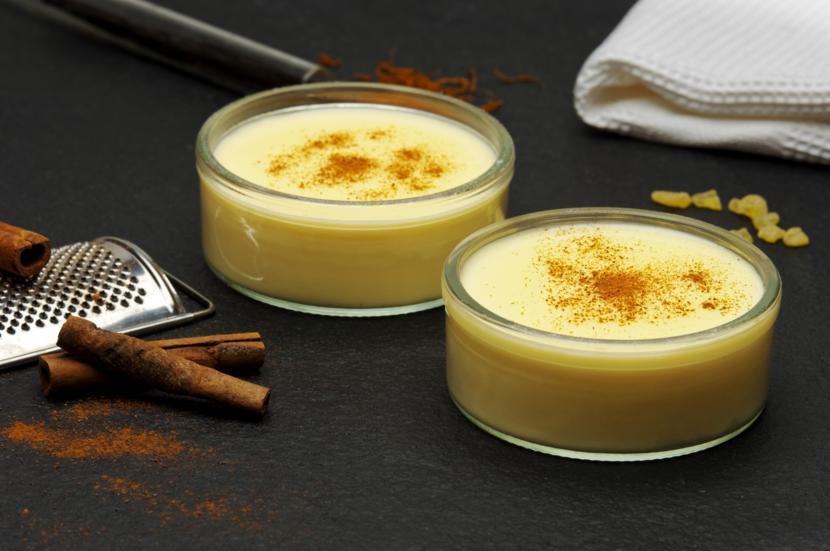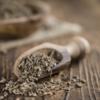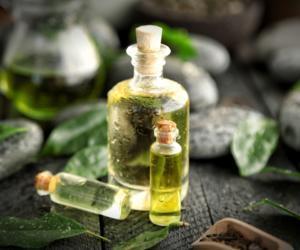The Health Benefits of Cinnamon

Cinnamon is a wonderful spice known for its unique taste and enticing aroma. It is has been used since ancient times due to its medicinal, culinary, and natural preservative powers. Cinnamon was also used by the ancient Egyptians as part of their mummification process. Cinnamon is not only used as an additive in cooking foods; it has numerous health benefits, too. So if you want to be fit and healthy, cinnamon should be one of the spices that you must have in your kitchen cabinet. Because it has a sweet and savory flavor, it can be added to a number of dishes such as apple pie, cinnamon rolls, and more. It is used in various Indian recipes as well. You can easily enjoy the essence of cinnamon, simply sprinkle it over your coffee or herbal teas. This article will put some light on the health benefits of cinnamon.
Where does cinnamon come from?
Cinnamon comes from the bark of the tree under the genus Cinnamomum. The bark comprises several organic compounds such as cinnamic acid, cinnamaldehyde, and cinnamate. These compounds are known for promoting good health and overall well-being.
Cinnamomum is actually a genus of the laurel family and has over 200 species. Ground cinnamon spice is made from the inner bark of Cinnamomum trees. It can also be used in the production of aromatic and potent cinnamon essential oils.
The different types of cinnamon come in variations according to its uses. They include cinnamon buds, ground cinnamon, Vietnamese "Saigon" cinnamon, and cinnamon sticks. However, the most common types of cinnamon used today are cassia and Ceylon.
Cinnamon is mainly grown in South India and Sri Lanka. The tree is grown for two years without harvesting.
According to research, the complete health benefits of cinnamon can be enjoyed in the form of its pure bark, in ground spice form, in the form of essential oils, or in extract form when its special flavonoids, phenolic compounds, and antioxidants are isolated. These compounds give cinnamon its anti-inflammatory, antioxidant, antimicrobial, antidiabetic, and immune-boosting properties. Cinnamon is also known to be helpful in people who have cancer or diabetes. All these benefits make cinnamon as one of the most useful spices on earth.
What are the health benefits of cinnamon?
The following are the 12 amazing health benefits of cinnamon:
1) Fights diabetes
Cinnamon is known to fight diabetes, especially type 2 diabetes. It lowers blood sugar levels and also improves sensitivity to insulin, a vital hormone required for keeping one's blood sugar levels under control.
People become diabetic when their body shows a resistance to insulin or is unable to manage how much sugar (glucose) enters the bloodstream.
Cinnamon works by inhibiting certain amino acids called alanines, which allow glucose to be easily absorbed into the bloodstream. Hence, cinnamon decreases the amount of glucose that enters the bloodstream after a sugary meal, thereby helping people fight diabetes.
2) Protects brain function
According to some studies, the protective antioxidant properties of cinnamon also protect the brain against neurological disorders such as Alzheimer’s and Parkinson’s disease. It promotes brain health and protects its cognitive function by activating neuroprotective proteins that defend the brain cells from mutation and damage. The antioxidants and anti-inflammatory compounds present in cinnamon are also known for reducing the effects of aging in the body and brain. Hence, it has a possibility of being used as a natural therapeutic treatment for age-related neurodegenerative diseases.
3) Lowers cancer risk
Because cinnamon has antioxidant properties, it can provide protection against DNA damage, cell mutation, and cancerous tumor growth. According to some studies, the health benefits of cinnamon come from a compound called "cinnamaldehyde". It has the capacity to stop the growth of cancerous tumors and protect a person's DNA from further damage. It also motivates cancerous cells to undergo a self-destruction process called "apoptosis" or "programmed cell death". Some studies have shown that cinnamon is most helpful in treating colon cancer. In fact, it is now being studied as a natural anticancer agent because of its powerful antioxidant properties. Hence, in the near future, cinnamon may prove helpful to those who would be at higher risk of developing cancer.
4) Lowers bad cholesterol
Even if you are not diabetic, you can still include cinnamon in your diet to lower your bad cholesterol. The compounds present in cinnamon are known for improving serum glucose, reducing triglycerides, lowering fasting blood glucose, LDL cholesterol, and total cholesterol. So even if you are not diabetic, you can still use cinnamon to stay away from hereditary cholesterol problems. This amazing spice is also known for increasing good cholesterol (HDL) levels. When the level of HDL is high, it helps remove LDL cholesterol from the body.
If you consume cinnamon on a regular basis, it may also help in reducing the effects of high-fat meals and by slowing down the increase of blood sugar after meals. Hence, by adding cinnamon in your daily diet, you are actually reducing the effects of high-fat foods.
5) Fights bacteria and viruses
When it comes to protecting the body against illnesses, cinnamon can be of great help. Cinnamon has antibacterial, antifungal, and antiviral properties that help fight against a number of infections and harmful microorganisms. For example, cinnamon essential oils are known for their immune-boosting abilities. They also provide protection against various bacteria that can cause problems in the skin, digestive tract, and respiratory tract.
6) Protects dental health
Studies have shown that the extracts found in cinnamon provide a defense against bacteria living in the mouth that could cause tooth decay, bad breath, cavities, and other oral infections. Cinnamon essential oil can be used to naturally kill and prevent bacteria in the mouth, thereby protecting an individual's overall dental health. Moreover, since cinnamon has mouth-refreshing properties, it is usually used as a natural flavoring agent in chewing gums, treating bad breath naturally. This is the reason why cinnamon is used traditionally as a tooth powder for treating toothaches, oral microbiome, mouth sores, and other dental problems.
7) Promotes healthy skin
The antibacterial and antimicrobial properties of cinnamon protect the skin from rashes, irritations, infections, and allergic reactions. If you experience pain, redness, swelling, or inflammation of the skin, apply cinnamon essential oil directly on your skin. Cinnamon and honey are often used together to promote healthy skin. This antimicrobial mixture is effective in treating rosacea, acne, and signs of allergies.
8) Prevents and cures Candida infections
Some studies have shown that the strong antifungal properties of cinnamon may be effective in preventing or curing the overgrowth of Candida in the digestive tract. It decreases the amount of the fungus Candida albicans, which causes an overgrowth of yeast in the body as well as multiple digestive and autoimmune symptoms. Additionally, cinnamon helps keep a person's blood sugar levels under control within the digestive tract, a condition that is linked to an increased risk of Candida overgrowth.
According to certain studies, patients who have Candida overgrowth showed a decrease in the levels of yeast in the body and a reduction of their symptoms when given cinnamon extract or cinnamon essential oil. It naturally fights Candida by relieving inflammation, limiting yeast proliferation in the gut, lessening autoimmune reactions, and boosting the immune system.
9) Helps fight allergies
Studies have shown that the compounds present in cinnamon can help people who are constantly affected by allergies. Cinnamon fights histamine reactions in the body and fights common allergy symptoms such as asthma attacks. The immune-boosting capabilities of cinnamon are beneficial for digestive health. It prevents autoimmune reactions from taking place after the person has been exposed to certain irritants or allergens.
10) Reduces pain
Cinnamon effectively keeps prostaglandins away. Prostaglandins are the receptors that make your neurons more sensitive to pain.
11) Helps in weight loss
Drinking a combination of cinnamon and honey in warm water is considered a good way to naturally lose weight. However, like any other weight loss remedies, you will see the results only if you combine it with regular exercise and a controlled diet.
12) Promotes hair health
A combination of cinnamon and honey in warm water can also nurture your hair. The mixture can minimize hair loss caused by hair fall. It also stimulates hair growth.
7 Ways to Add Cinnamon to Your Diet
1) Lemon, cinnamon, and honey
Lemon, cinnamon, and honey together make a powerful combination that protects you against various types of diseases and infections. Simply boil a cinnamon stick in water, add some honey, and squeeze one whole lemon into the mixture to get a refreshing, healthy drink. You can also add other spices such as pepper, cardamom, ginger, or mint if you wish.
2) Cinnamon water
Boil cinnamon sticks in water and sip on between meals during the day to get its health benefits.
3) Sprinkle it on your coffee
If you are a coffee lover, you can just sprinkle cinnamon over it to get its benefits.
4) Sprinkle it to your juices
Just like coffee, you can also sprinkle some cinnamon over your fruit and vegetable juices to enhance their flavor and nutritional value. Cinnamon goes perfectly with carrot juice, apple juice, and orange juice.
5) Add to your protein shakes
Add cinnamon powder to your protein shakes to give them an extra kick.
6) Add to dishes
Cinnamon is a versatile spice that you can add to numerous dishes. You can add them to curries, rice, and other meal preparations to boost cinnamon's flavor and aroma.
7) Add it to smoothies
You can also add cinnamon to fruit smoothies such as the banana-oat smoothie. Take one banana, a handful of oats, a teaspoon of cinnamon, 1 teaspoon of sugar, 1 cup of milk, and half a cup of yogurt. Blend them together to get a delicious, healthy smoothie.
How much cinnamon should you take?
There are no specific guidelines that can tell how much cinnamon you should take. Generally speaking, if you are eating it in ground, powdered form, taking 1 teaspoon a day is advised. The concentration of cinnamon in oils varies from one product to another. Hence, you must read the instructions first before using them. If used excessively and taken in large amounts, it can be toxic as well. Excess of everything is bad, so be careful. If you are already using blood-thinning medicine, it is better to avoid cinnamon altogether.
Cinnamon and Honey: A Powerful Remedy for Weight Loss
The internet is filled with too many suggestions and ways that claim to help you lose weight. The powerful combination of cinnamon and honey is one of the effective home remedies that is considered to be helpful in weight loss. In fact, the mixture has been used for thousands of centuries in both traditional Chinese and Ayurveda for treating a range of ailments.
Honey has an antimicrobial property that when applied topically can treat a lot of hair and skin problems. It is thick, has a low pH, and the hydrogen peroxide produced by its enzymes can help prevent bacterial infection.
Many studies have also shown that honey is highly effective in treating wound infections and burns. It also helps treat cough and is just as effective as over-the-counter cough medications.
Just like honey, cinnamon also has a number of medicinal properties. In fact, studies have shown that it has both antimicrobial and antiparasitic effects. It also contains antioxidants that promote wound healing, and may even lower cholesterol levels and blood pressure. Although there is very little evidence backing the claim that the combination of cinnamon and honey aids in weight loss, it is still good to take for several other reasons.
When used in small amounts, cinnamon usually does not cause any negative reactions or allergies. However, if taken in excess, it can prove dangerous too. If you are not using cinnamon naturally through foods, but instead taking its extract supplements or using it in the form of essential oil, it can interfere with other medications and medical conditions. Cinnamon essential oil can also cause allergic reactions for some people, so it is better to do a patch test first before applying.






![[Infographic] Saw Palmetto Health Benefits and Uses](https://production.findatopdoc.com/var/fatd/storage/images/_aliases/embedded_item/top-videos-and-slideshows/saw-palmetto/909033-1-eng-US/Saw-Palmetto.png)










